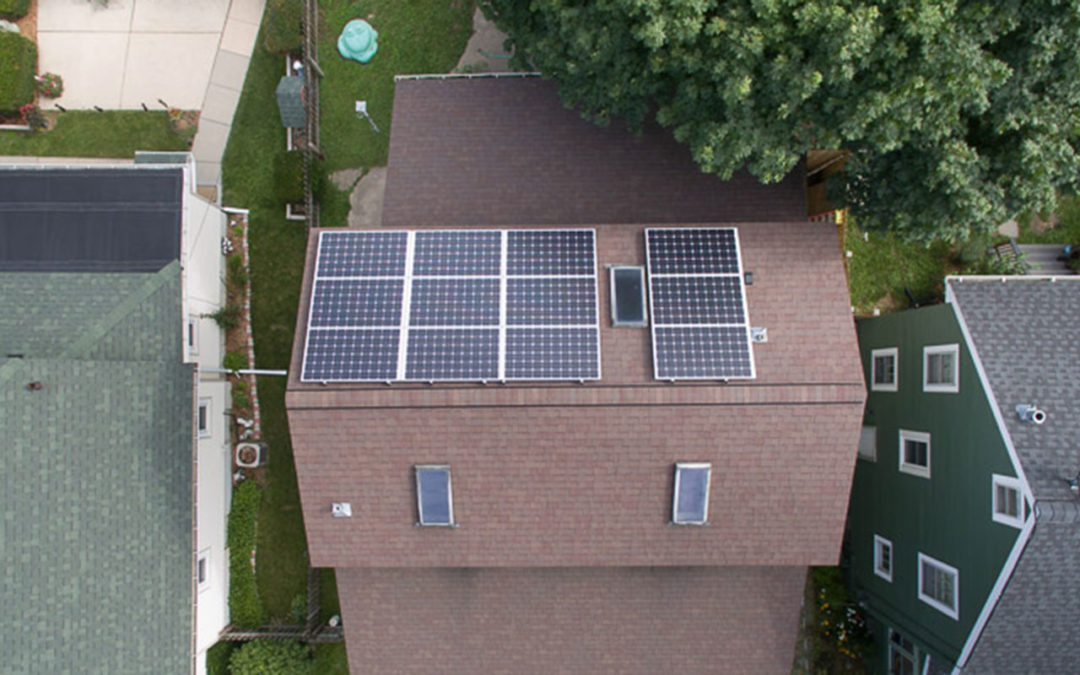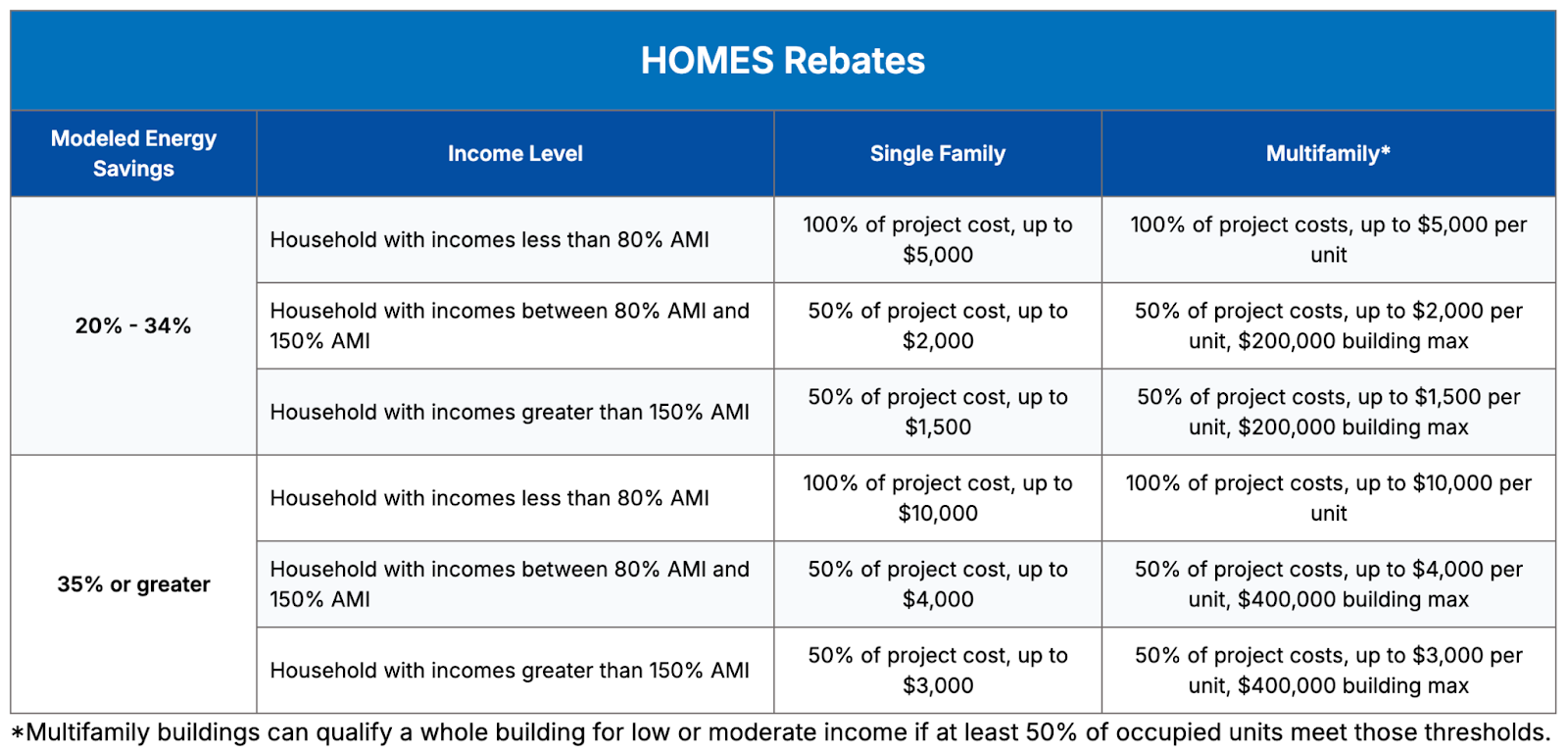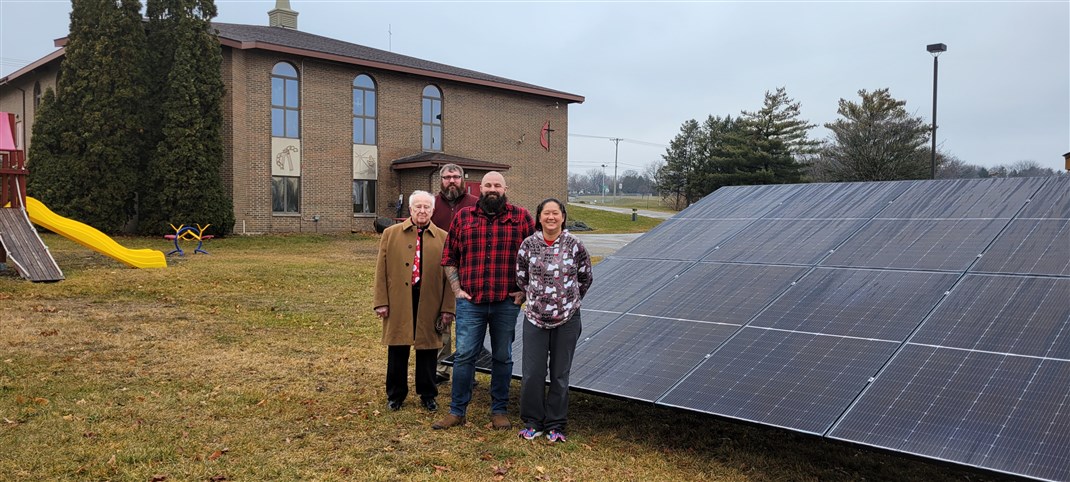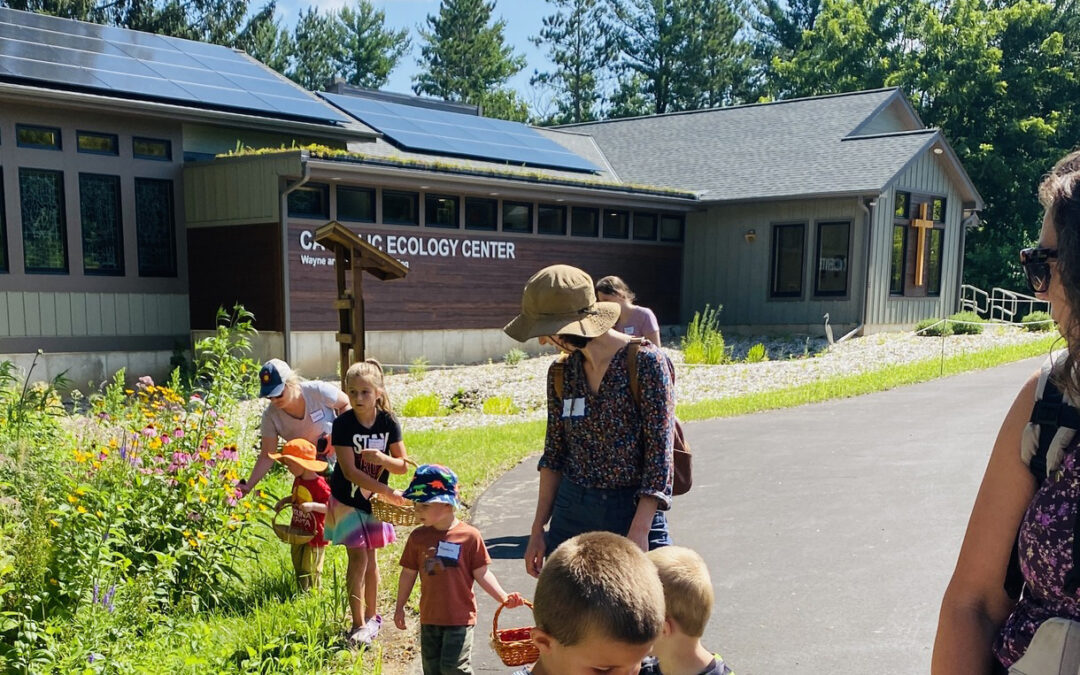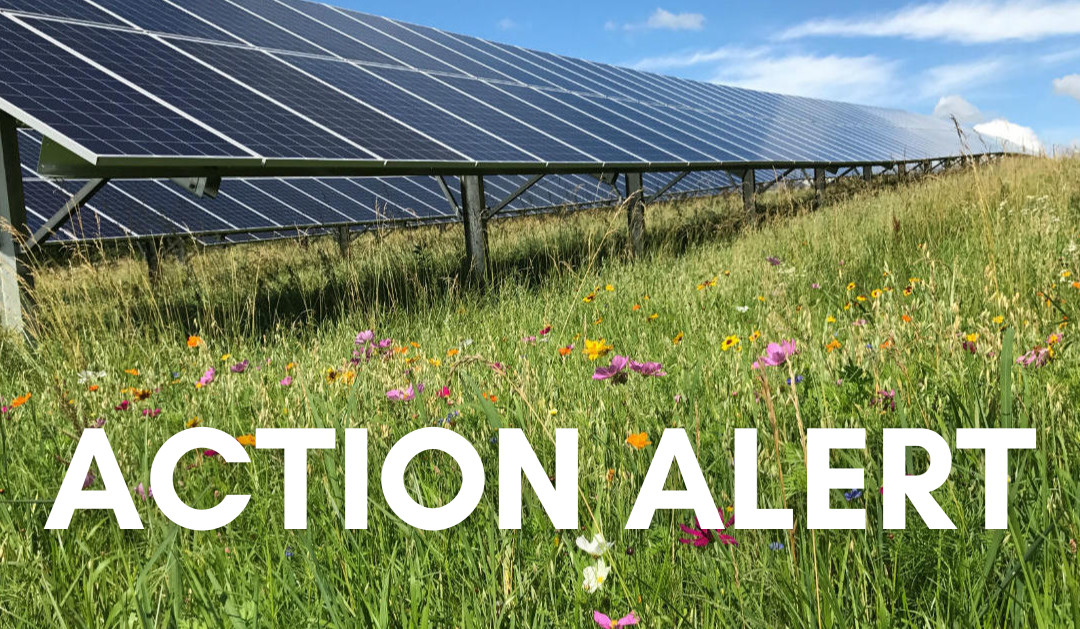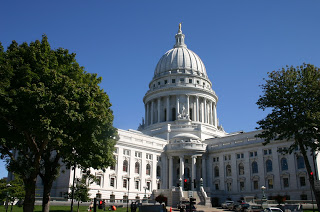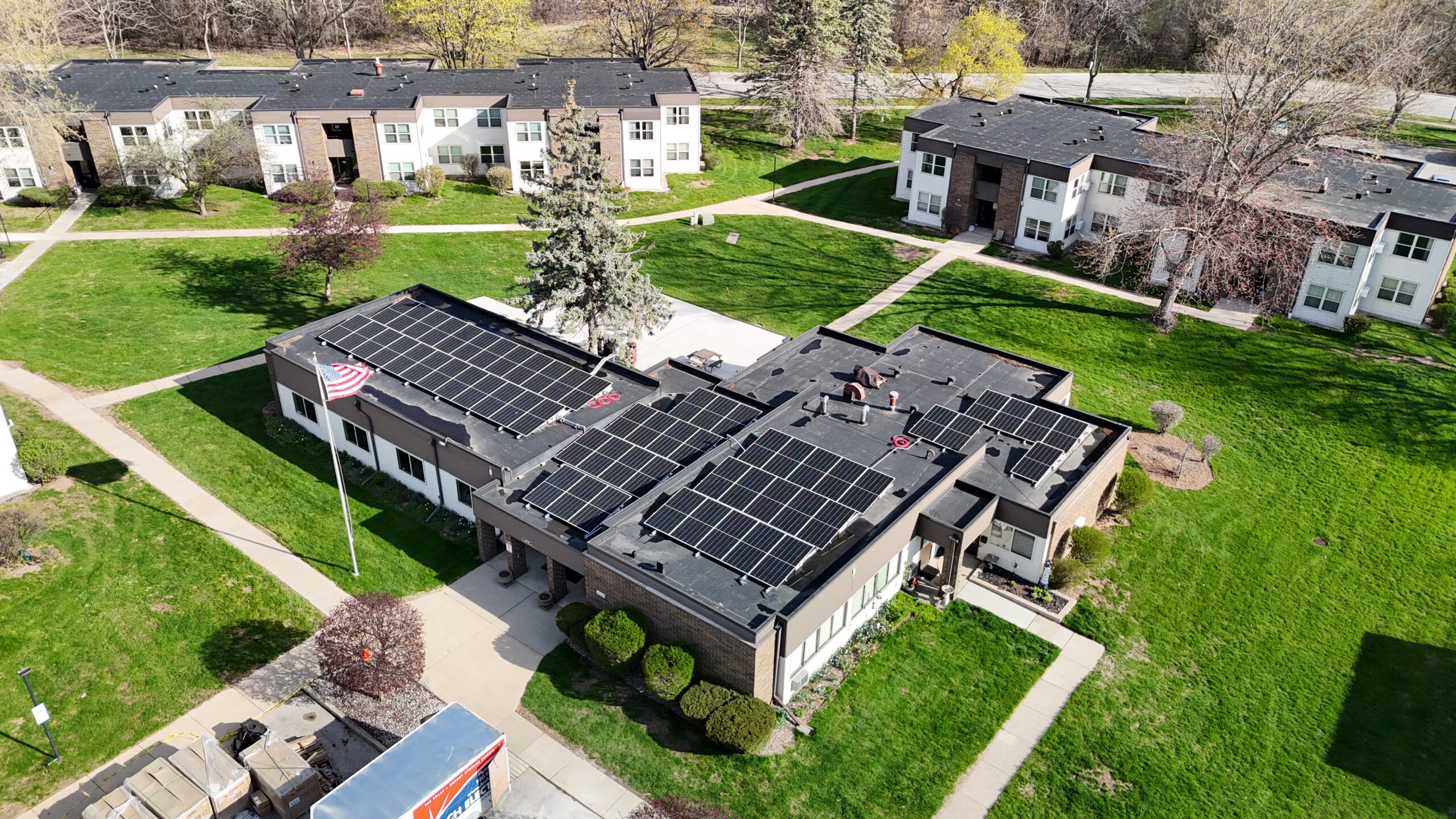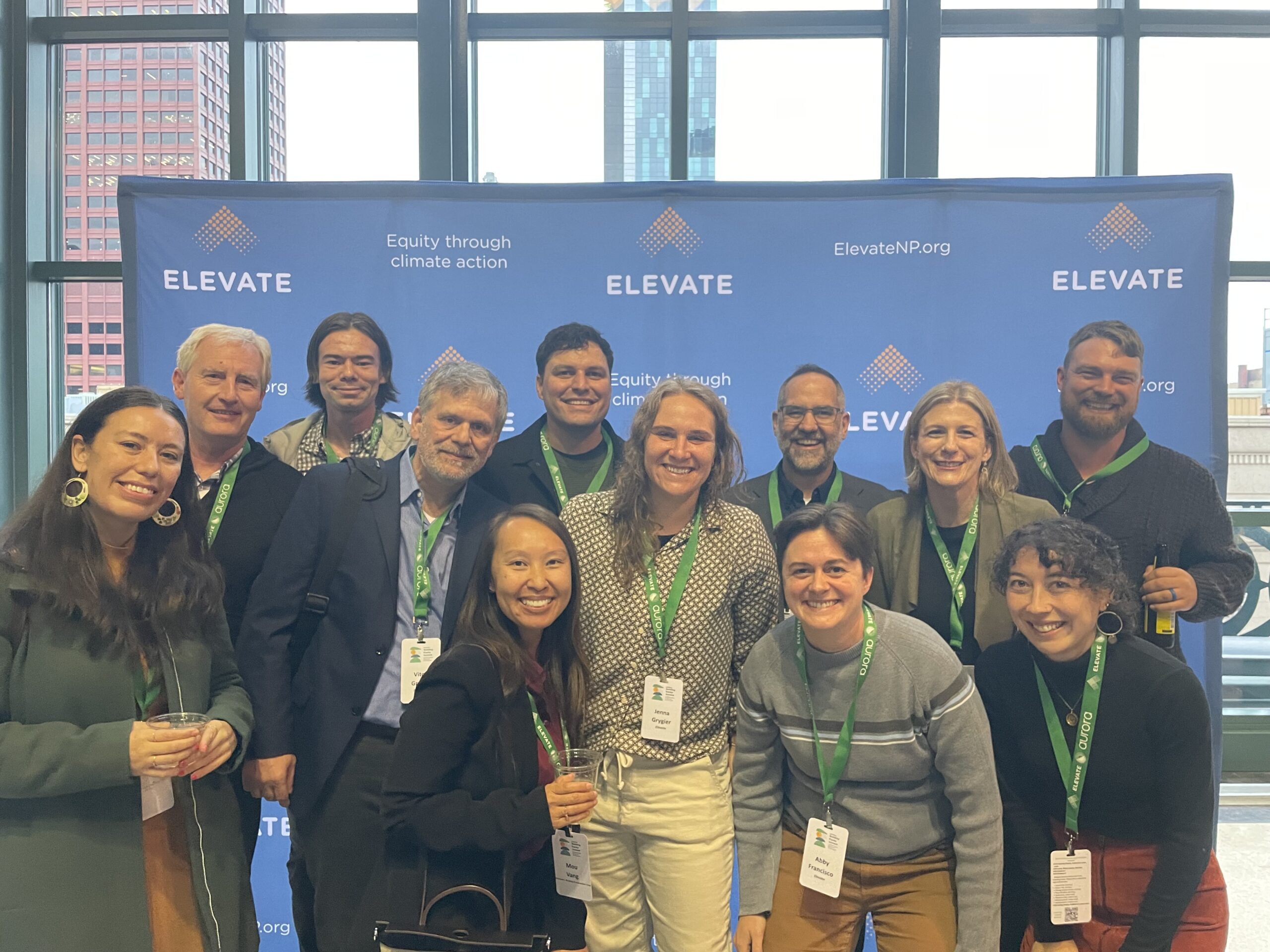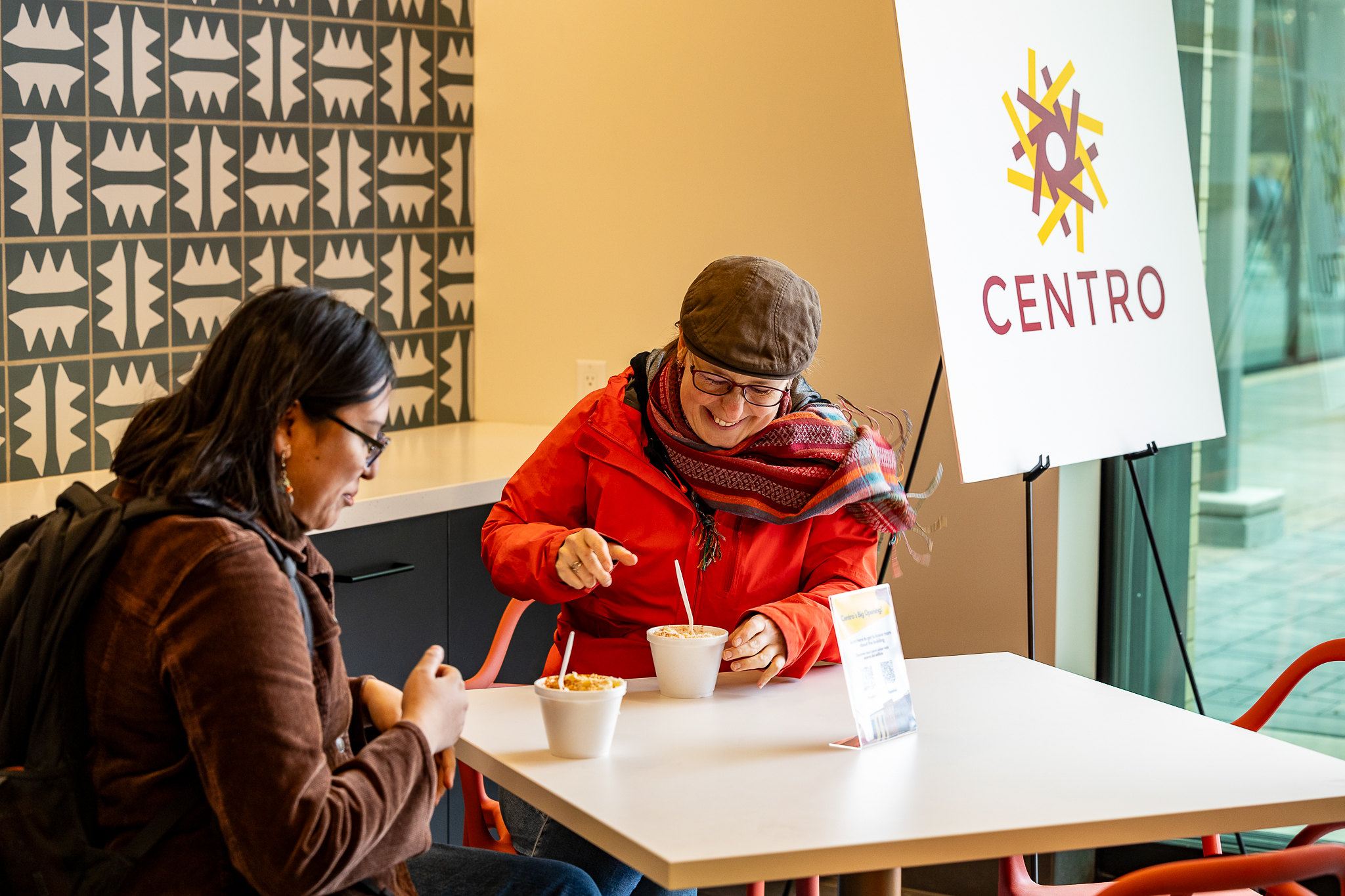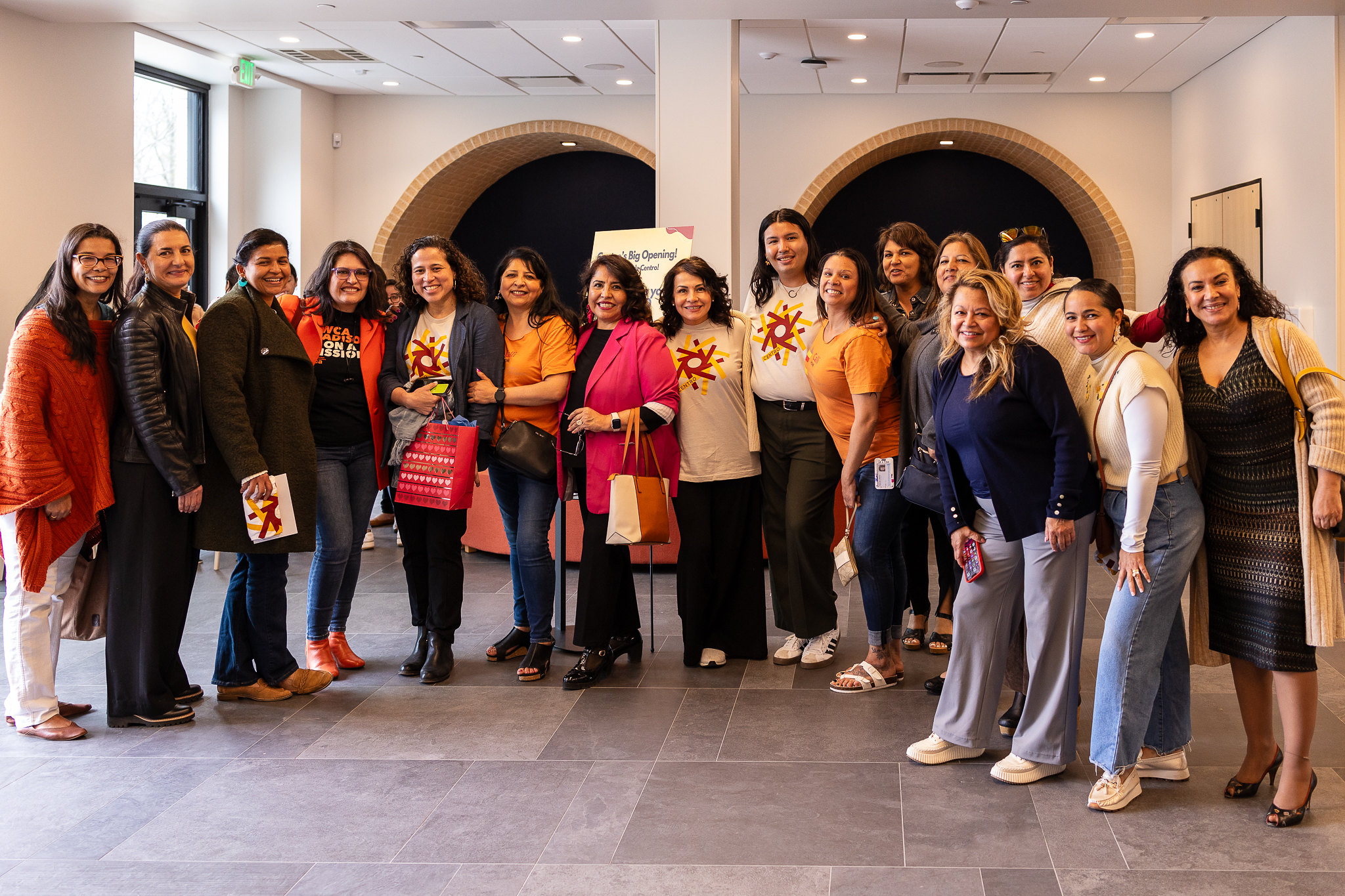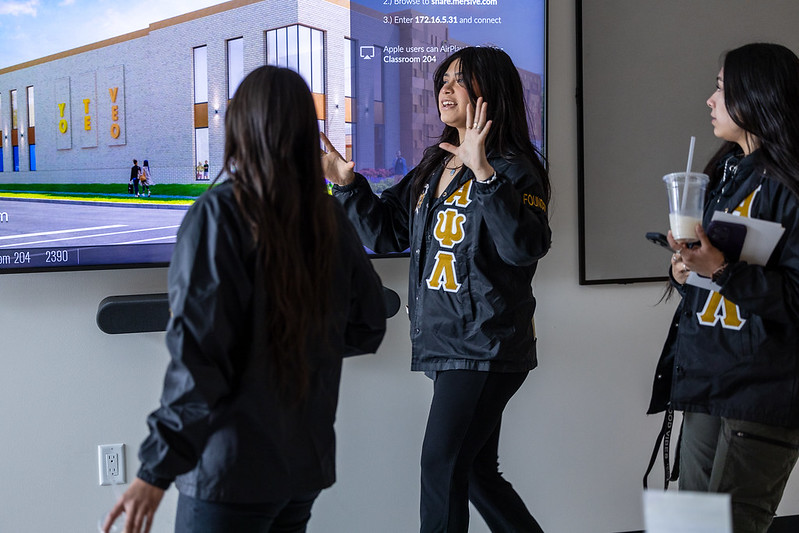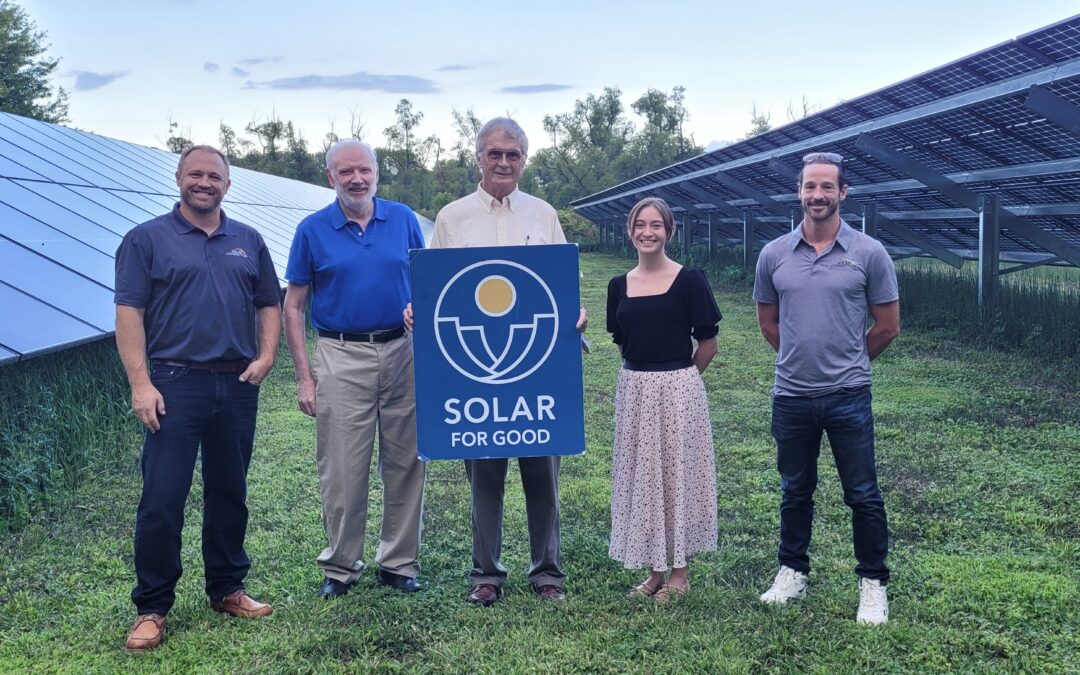
Harnessing Solar for Coulee Region Humane Society’s Critters
On Thursday, August 15, Coulee Region Humane Society (CRHS) celebrated the expansion of their animal shelter and the addition of 240 ground-mounted bifacial solar panels. CRHS is based out of Onalaska, centered in the Driftless Region of Wisconsin. Having reliable and sustainable sources is instrumental to being able to provide energy for veterinary services and day-to-day care for animals.
CRHS’ vision of acting as a regional leader in enhancing the well-being of wildlife and adoptable pets makes their transition to solar energy a demonstration of the shelter’s commitment to providing the best services for the animals they care for. Their impact extends beyond animals within their immediate care to the Onalaska community.
In addition to providing housing for homeless animals, the humane society also offers dog training programs, and reduced fees for veterinary services to increase accessibility to veterinary care, and wildlife rehabilitation. If you ever find yourself at the humane society, you may also meet Flower, their de-scented skunk who helps with educational programming for youth!

To be able to focus the organization’s resources on animals, CRHS turned to solar technology. The nonprofit requires a significant amount of energy to ensure that all animals within their care receive optimal shelter by cleaning the laundry daily. In 2023 alone, over 2,000 domestic animals came into their care. The savings from their solar array will reduce operational costs and allow their team to prioritize funding to the core of their mission in serving animals that enter their doors.
CRHS’ new 129.6 kilowatt (kW) solar array, installed by Solar Connections, is expected to cover 80-85% of their annual electrical needs. While their focus is on animals, the humane society strives to make a greater positive impact on the Onalaska community and environment.
With the completion of their solar array, CRHS joins over 200 mission-based nonprofits in Wisconsin that have also decided to turn to clean energy sources with the support of Solar for Good. Through collective impact, these organizations demonstrate leadership in Wisconsin’s transition to renewable energy, creating a sustainable future for all.

